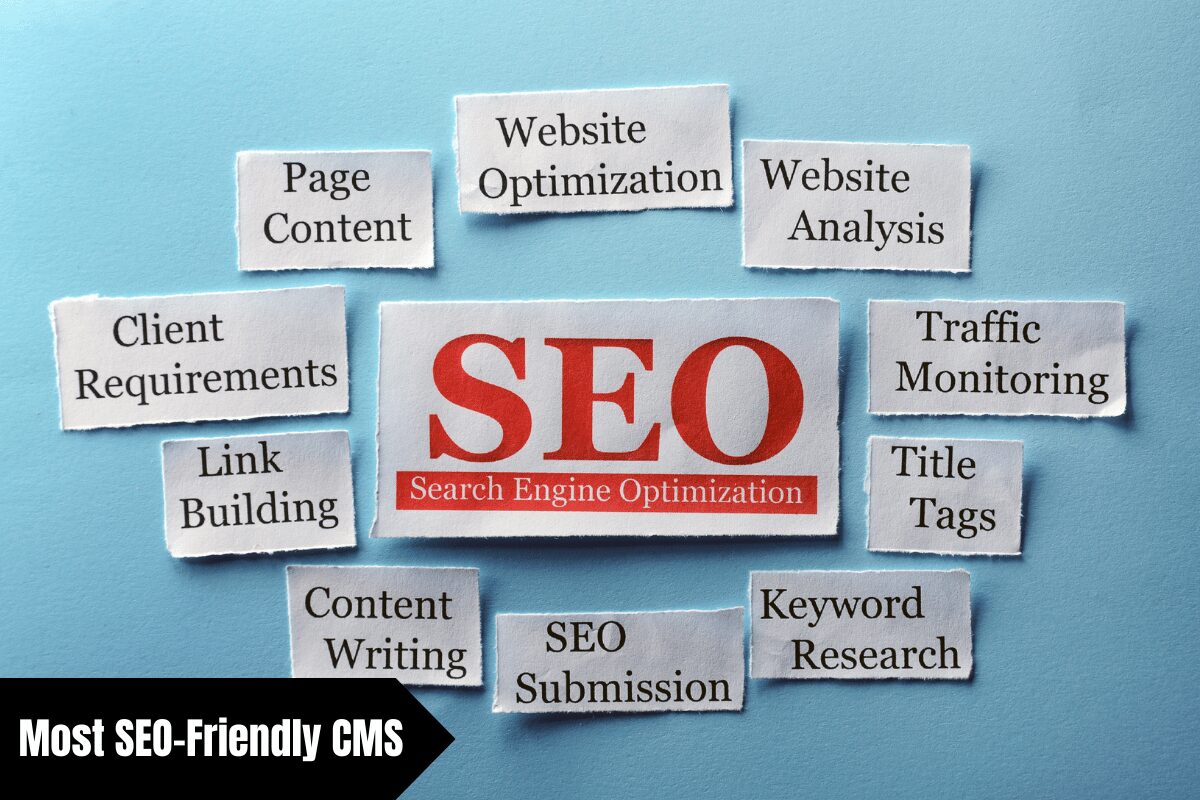Let’s get real for a second. How many times have you poured hours into optimizing content, tweaking meta tags, and chasing backlinks, only to realize your CMS (Content Management System) is basically working against you? We’ve been there too. If your CMS isn’t built with SEO in mind, you’re stuck playing a rigged game. But hey, no judgment—we’re here to geek out about SEO-friendly CMS platforms and how they can turn your site from invisible to irresistible.
At Sitelinx Organic SEO Agency, we’ve spent years wrestling with clunky CMS setups and celebrating the ones that just get it. Spoiler: Not all platforms are created equal. Let’s break down what makes a CMS SEO-friendly, which ones actually deserve your time, and why partnering with SEO experts (like us, wink) can save you from pulling your hair out.
What Makes a CMS SEO-Friendly? Hint: It’s Not Just “Pretty Themes”
Imagine building a house on quicksand. That’s what happens when your CMS lacks core SEO features. A great SEO-friendly CMS isn’t just about drag-and-drop design—it’s about giving you control over the nitty-gritty stuff search engines crave.
Core Features You Can’t Compromise On
- Customizable URLs: If your CMS forces you into URLs like “yoursite.com/page123”, run. Fast.
- Meta Tag Management: You need to tweak titles and descriptions without needing a PhD in coding.
- Mobile Optimization: Google’s mobile-first indexing isn’t a suggestion—it’s a mandate.
- Speed Matters: A slow CMS is like showing up to a race in flip-flops.
Ever tried using a CMS that makes 301 redirects feel like rocket science? Yeah, we’ve met those too. Pro tip: Platforms like WordPress and Shopify let you handle this stuff in your pajamas.
Flexibility & Plugins: The Secret Sauce
Plugins are the duct tape of the SEO world. Need schema markup? There’s a plugin for that. Want to automate SEO reports? Tools like the best SEO report software (lookin’ at you, SEMrush and Ahrefs) integrate seamlessly with robust CMS platforms.
But beware—too many plugins can slow your site down. It’s like putting 10 spoons of sugar in your coffee. A little goes a long way.
The Top Contenders for “Best SEO-Friendly CMS” (Spoiler: One’s Probably in Your Browser History)
Let’s cut through the hype. Here’s our brutally honest take on the CMS heavyweights:
1. WordPress: The OG Powerhouse
- Why We Love It: Endless customization, SEO plugins like Yoast, and a community that’s basically a 24/7 support group.
- Watch Out For: Updates that occasionally break your site. We’ve all cried over a vanished homepage at 2 AM.
2. Shopify: For E-Commerce Warriors
- SEO Perks: Built-in SSL, clean URLs, and automatic sitemaps.
- Drawbacks: Limited blog functionality. Unless you’re okay with sounding like a robot.
3. Wix: The New Kid on the Block
- Pros: Super user-friendly. Great for small businesses dipping toes into local SEO services.
- Cons: Less flexibility. It’s like training wheels—awesome at first, but you’ll outgrow them.
FYI, if you’re a lawyer or architect, platforms like WordPress paired with niche plugins (cough best SEO company for lawyers cough SEO agency for architects) can give you an unfair advantage. Just saying.
The Dark Side of CMS Choices: Don’t Fall for These Traps
Let’s address the elephant in the room: reviews. Just because your cousin’s friend’s dog walker swears by a CMS doesn’t mean it’s right for you. Here’s what to avoid:
- “SEO Magic” Promises: If a CMS claims it’ll get you to #1 overnight, it’s probably selling snake oil.
- Ignoring Mobile Users: 60% of searches happen on phones. Don’t be that guy.
- Forgetting Analytics: A CMS without built-in analytics is like driving blindfolded.
And hey, if you’re tempted to use a traffic bot searchseo shortcut? Just… don’t. Google’s smarter than that, and so are your competitors.
Why Even the Best CMS Needs a Sidekick (Hint: It’s Us)
Look, we get it. You’re busy running a business, not obsessing over canonical tags. That’s where SEO companies like Sitelinx come in. Here’s why teaming up with experts can be a game-changer:
- Time Saved: Let us handle the technical SEO while you focus on… well, everything else.
- Industry-Specific Strategies: Whether you’re a law firm or design studio (ahem SEO agency for architects), we’ve got tailored fixes.
- Avoiding Costly Mistakes: One wrong redirect can tank your traffic. We’ll keep your site squeaky clean.
Think of us as your CMS’s caffeine boost. We’ll make sure it’s running at full throttle.
Your Burning Questions, Answered
Q: “Which CMS is actually the best for SEO?”
A: WordPress still reigns for flexibility, but Shopify and Squarespace are solid for niche needs.
Q: “How often should I update my SEO strategy?”
A: Monthly tweaks + quarterly deep dives. SEO’s a marathon, not a sprint.
Q: “Do I need an agency if my CMS is SEO-friendly?”
A: Even the best tools need sharp minds. We’ll help you outsmart the algorithm.
The Bottom Line: your CMS Should Work For You, Not Against You
Choosing an SEO-friendly CMS is like picking a business partner—it needs to align with your goals, adapt as you grow, and not ghost you when things get technical. Whether you’re a solo entrepreneur or a booming agency, the right platform (and the right team) can turn SEO from a headache into your secret weapon.
At Sitelinx Organic SEO Agency, we live for this stuff. Let’s turn your site into a traffic magnet—without the gimmicks. Drop us a line, and let’s get your CMS working smarter, not harder.
Final thought: Life’s too short for bad coffee and clunky CMS platforms. Choose wisely.

